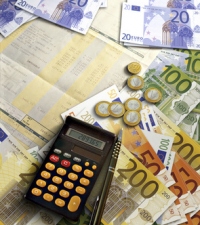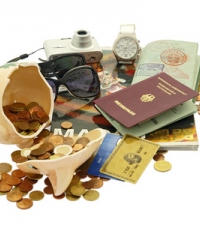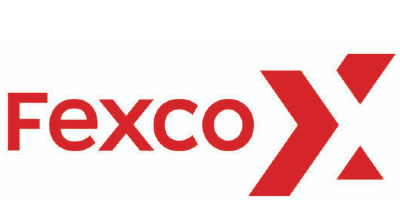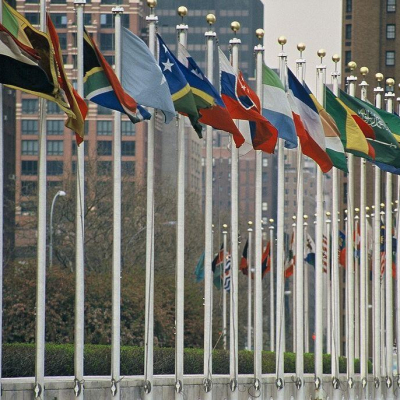Banks in Malta

Malta’s banking system encompasses the Central Bank of Malta, the Malta Financial Services Authority, and credit institutions, such as banks. The main banks in Malta are HSBC (Hongkong and Shanghai Banking Corporation) and BOV (the Bank of Valletta). Other banks such as Banif, APS, Deustche Bank, Lombard, FIM, Izola, and BNP Paribas Fortis also operate in Malta.
Non-banking financial institutions are also licensed to operate in Malta, and include companies such as Western Union, which offer money transmission services. A full list of licensed banking and non-banking financial institutions in Malta can be found through the Financial Services Authory’s web site.
Bank statements and correspondence are available in both Maltese and English. Banks and offices also offer services in both languages.
Standard opening times for banks in Malta is 830hrs/8:30am to 1230hrs/12:30pm Monday to Thursday, 830hrs/8:30am to 1630hrs/4:30pm Friday, and 830hrs/8:30am to 1230hrs/12:30pm Saturday. Extended hours and evening service are offered at select banks throughout the islands.
All bank branches and offices are closed on the following bank holidays: 1st January, 10th February, 19th March, 31st March, Good Friday, Easter Monday, 1st May, 7th June, 29th June, 15th August, 8th September, 21st September, 8th December, 13th December, 25th December, and 26th December.
Banking Sector
The Central Bank of Malta is responsible for maintaining price stability and the formulation and implementation of monetary policy in Malta. It also promotes Malta’s financial system and capital markets. The MFSA is responsible for regulating and supervising Malta’s banking sector. It also houses Malta’s Registry of Companies.
Malta’s banking sector is fast becoming one of the most growth inclined and reliable in Europe, offering retail banking, private banking, trust business, investment banking, trade finance, treasury operations, and syndicated loan operations and services. Closely supervised by the MFSA, banks in Malta are well capitalized with high liquidity ratios and sound, well diversified portfolios. Their funding is sourced mainly from customer deposits, and their prudent business models are enabling Malta’s banks to emerge relatively unscathed from the European financial crisis.
Malta’s banking system was declared the ‘Most Solvent in the EU’ by the European Central Bank in 2009, with a solvency ratio of 17.69% compared to a European average of 11.7%. In 2008, the World Economic Forum also named Malta’s banks as the 10th soundest in the world.
Opening an Account
The main types of bank accounts in Malta are current accounts, used for everyday banking, savings accounts, and deposit accounts. Savings accounts offer lower interest rates with some restrictions on withdrawals and access. Deposit accounts have higher interest rates but limited or no access to funds until the maturity date. Current accounts typically include a debit card and cheque facility, giving easy access to available funds.
Opening a bank account in Malta is relatively easy. Non-residents must prove they have a good credit rating. Individuals opening accounts will be asked to provide documentation to support their application. This typically includes a passport, proof of address, a recent utility bill, and a reference from your current home bank. You may also be asked to provide proof of employment, income, or a clean criminal record. Students opening bank accounts will be asked to provide proof of studies from their educational institution. Opening a bank account in Malta typically takes two to four weeks.
Some credit cards and bank accounts require a deposit when opening an account.
Note that banking correspondence, such as new PINs, are typically provided via post.
Bank services
ATMs/ABMs
ATMs and ABMs are located throughout the islands, most commonly offered by HSBC and BOV. There are typically no fees for withdrawing funds using a Maltese debit card from a Maltese banking ATM. Cash and cheque deposits must be made at ATMs at banking offices.
ATMs can issue €10, €20, €50, and €100 Euro bills.
If you are not opening a Maltese bank account, you can use a Visa/Electron/Plus or Mastercard/Cirrus/Maestro/Solo card at HSBC and BOV ATMs. Note that cash withdrawals using credit cards will incur fees.
Exchanging Foreign Currencies
HSBC offers a Foreign Currency Exchange service at the airport Arrivals lounge. As Malta is a popular tourist destination, you can also exchange foreign currencies at automated machines and bureaux de change throughout the islands.
Traveller’s cheques can be exchanged at financial institutions throughout the islands. If you are a new expat in Malta exchanging traveller’s cheques at a bank, remember to cash them at no commission, rather than deposit them into an account at a commission rate.
Credit Cards
Visa, Mastercard, American Express and Diner’s Club are accepted in Malta and Gozo. However, many smaller shops and services are cash-only, therefore it is highly recommended to carry cash. Malta has a very low crime rate, and traveller’s money belts are not required.
Debit Cards
Not all foreign debit cards are accepted in Malta, such as UK Solo/Electron Cards. Check with your financial institution before visiting or moving to the islands.
Debit cards for Maltese banks can be used at most locations where credit cards are accepted. Local debit cards can also be used to purchase local goods and services online, such as groceries, theatre, and cinemas tickets.
Debit cards from Maltese banks typically do not work outside of Malta. Check with your Maltese financial institution before travelling, or open a credit/debit card account such as Visa Debit.
Money Transfers
Malta has joined the SEPA (Single Euro Payments Area) initiative, which treats all electronic payments in euros as domestic transactions.
Amounts of over €10,000 being brought into or taken out of Malta must be declared to Customs upon arrival or departure.
Online Banking and Banking Apps
Most Maltese banking institutions offer online banking services. Note that these services have heightened security features, such as Security Devices, which generate unique numerical codes to be inputted when performing online banking services.
Local bank BOV (Bank of Valletta) now offers a mobile banking app available for iPhones and Android smart phones. The application is free to download and requires a 3G or WiFi connection.
By Jess Gerrow, who traded city life in Canada for island life in the Mediterranean two years ago. She is a postgraduate marketing student, blogger, and freelance writer.
- My Life Abroad -
A selection of expat stories

"A fun compulsive read!"
J. Matcham, Amazon
"I strongly advise people ready to live abroad to read this book!"
Patrice, Amazon

 How exchange rates can affect how you pay for a property overseas
How exchange rates can affect how you pay for a property overseas What are the Benefits of using a Broker to Manage Regular Overseas Payments?
What are the Benefits of using a Broker to Manage Regular Overseas Payments? How to Transfer Money Overseas using a Broker
How to Transfer Money Overseas using a Broker Fexco payment solutions
Fexco payment solutions Embassies and Consulates in Malta
Embassies and Consulates in Malta